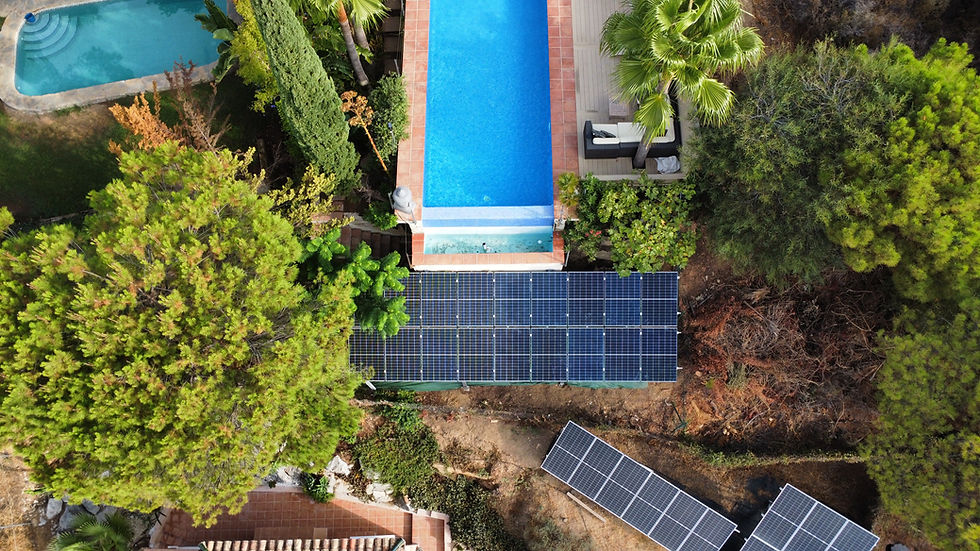
As solar energy becomes increasingly popular, misconceptions and myths surrounding it continue to circulate. These myths can create unnecessary confusion and hesitation for those considering solar power. This blog post will debunk ten common solar energy myths, providing clarity and encouraging informed decisions about adopting this renewable energy source.
Myth 1: Solar Panels Don’t Work in Cloudy or Cold Climates
Fact: Solar panels can generate electricity in various weather conditions, including cloudy and cold climates. While solar panels are most efficient in direct sunlight, they can still produce energy on cloudy days. In fact, solar panels are used successfully in countries with less sunny climates, such as Germany and the UK. Additionally, colder temperatures can actually improve the efficiency of solar panels, as excessive heat can reduce their performance.
Myth 2: Solar Panels Are Too Expensive
Fact: The cost of solar panels has decreased significantly over the past decade. Advances in technology, increased production, and government incentives have made solar energy more affordable than ever. Many financing options, such as loans, leases, and power purchase agreements (PPAs), can further reduce the upfront costs. Additionally, the long-term savings on energy bills and potential increase in property value make solar panels a smart financial investment.
Myth 3: Solar Panels Require Constant Maintenance
Fact: Solar panels require minimal maintenance. They have no moving parts, making them highly reliable and low-maintenance. Most solar panels only need occasional cleaning to remove dirt and debris that might obstruct sunlight. Many manufacturers offer warranties that cover performance and maintenance, ensuring peace of mind for solar panel owners.
Myth 4: Solar Energy Systems Are Not Efficient
Fact: Solar panel efficiency has improved significantly over the years. Modern solar panels can convert around 15-20% of the sunlight they receive into electricity, with some high-efficiency models reaching up to 23%. While this might seem low, it’s important to consider the vast amount of sunlight available and the cumulative energy production over the system’s lifespan. Solar technology continues to advance, promising even higher efficiencies in the future.
Myth 5: Solar Panels Are Ugly and Will Ruin the Look of My Home
Fact: Solar panel design has come a long way, with many aesthetically pleasing options available today. Solar shingles and building-integrated photovoltaics (BIPV) blend seamlessly with traditional roofing materials, maintaining the aesthetic appeal of homes. Additionally, solar panels can be installed in less visible areas, such as flat roofs or ground-mounted systems, to minimize visual impact.

Myth 6: Solar Energy Isn’t Reliable Because the Sun Doesn’t Shine 24/7
Fact: While it’s true that solar panels only generate electricity during daylight hours, this doesn’t mean solar energy isn’t reliable. Solar energy systems are often paired with battery storage solutions, which store excess energy produced during the day for use at night or during cloudy periods. Additionally, grid-tied systems allow homeowners to draw electricity from the grid when needed and feed excess solar energy back into the grid, often receiving credits through net metering.
Myth 7: Solar Panels Damage Your Roof
Fact: Properly installed solar panels do not damage your roof. In fact, they can protect the portion of the roof they cover from the elements, potentially extending its lifespan. Professional solar installers use specialized mounting systems that ensure panels are securely attached without causing leaks or structural damage. It’s crucial to work with a reputable installer to ensure the system is installed correctly.
Myth 8: Solar Energy Isn’t Effective for Large-Scale Power Needs
Fact: Solar energy is scalable and can be used to meet large-scale power needs. Utility-scale solar farms, which consist of thousands of solar panels, are increasingly contributing to the global energy supply. These large installations can produce significant amounts of electricity, supporting grid stability and reducing reliance on fossil fuels. Additionally, advancements in energy storage technology enhance the capability of solar energy to meet large-scale demands.
Myth 9: Solar Panels Have a Short Lifespan
Fact: Solar panels are highly durable and have a long lifespan. Most solar panels come with warranties ranging from 20 to 25 years, and many continue to produce electricity well beyond this period. Over time, the efficiency of solar panels may decrease slightly, but they can still generate substantial amounts of electricity for decades. Regular maintenance and monitoring ensure optimal performance throughout their lifespan.

Myth 10: Solar Energy Is Only for Environmentalists
Fact: Solar energy is for everyone, regardless of their environmental stance. While it’s true that solar energy has significant environmental benefits, such as reducing carbon emissions and reliance on fossil fuels, it also offers practical and financial advantages. Homeowners and businesses can save on energy costs, increase property value, and gain energy independence by switching to solar power. Solar energy is a smart choice for anyone looking to reduce expenses and invest in a sustainable future.
Solar energy is a powerful and viable renewable energy source that offers numerous benefits. By debunking these common myths, we hope to provide a clearer understanding of solar energy and encourage more people to consider it as a practical and sustainable option.
If you’re interested in learning more about solar energy or exploring how it can benefit your home or business, contact Solar Mind today. Let’s work together to harness the power of the sun and create a brighter, greener future.
